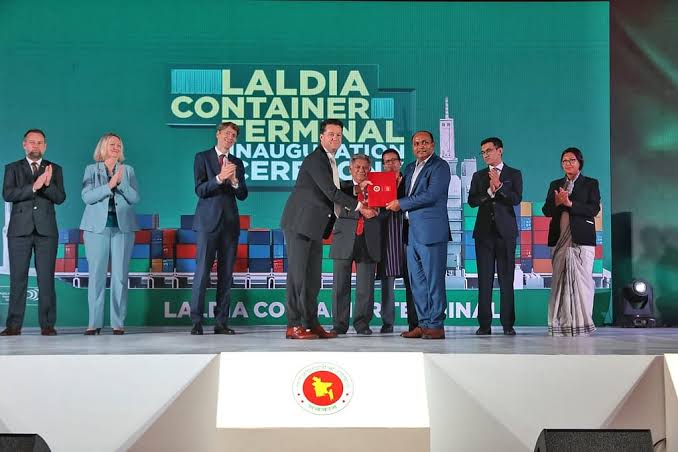Staff Correspondent
Published:2025-11-27 13:05:14 BdST
TIB calls for full disclosure of agreements with foreign cos on Laldia, Pangaon terminals
Transparency International Bangladesh (TIB) has said that while foreign investment in the development of Chattogram Port may bring positive outcomes for the country, the government must fully disclose all information, conditions and procedures related to recently signed terminal agreements to ensure transparency and accountability.
In a statement on Wednesday, TIB Executive Director Dr. Iftekharuzzaman said the government’s agreements for the Laldia Terminal with Denmark-based APM Terminals and for the Pangaon Terminal with Switzerland’s Medlog SA require greater public clarity.
TIB Executive Director Dr. Iftekharuzzaman said, people welcome efforts to attract foreign direct investment for port development and economic growth. However, it is essential to make public know how national interests have been protected in these long-term deals
“We welcome efforts to attract foreign direct investment for port development and economic growth,” he said. “However, it is essential to make public know how national interests have been protected in these long-term deals.”
Dr. Zaman further said, “Has an analysis been conducted on the port-centered employment and the positive and negative impacts on various related institutions and stakeholders? Overall, to what extent have the interests of the public been considered, and how much does this agreement contribute to developing local skills and capacities in this sector? Moreover, is there a clear economic strategic roadmap that formed the basis of the government’s decision to sign this long-term agreement? Since the government has already signed the agreement, answers to these questions related to national interest must be promptly disclosed to the public in the interest of transparency.”
Dr. Iftekharuzzaman further said, “Although the report of the International Finance Corporation (IFC), acting as the transaction adviser for Bangladesh in connection with the APM agreement, had projected a 62-day timeframe to complete the agreement after the submission of the proposal, from the submission of the proposal to the Chief Adviser’s final approval and the signing of the agreement—10 important steps (technical and financial evaluation, negotiation, port board meeting, and approvals from the Ministry of Shipping and the Ministry of Law, and the Letter of Award), each of which requires thorough scrutiny as a matter of state-level importance—were completed at an unusually rapid pace within only two weeks. This creates a reasonable basis for questioning the entire process. Therefore, a clear explanation from the government on this matter is imperative.
Moreover, if the Pangaon terminal agreement was conducted through a competitive process, then what was the rationale behind adopting an exceptional process in the case of Laldia? We call on the government to clarify this as well.”
Leaving the question of to what extent the opinions of local stakeholders were considered before signing the agreement, Dr. Zaman said, “Alongside the positive aspects of such long-term agreements in the international arena, have factors such as examples of economic risks in developing countries like ours, and our capacity to provide possible remedies or fulfill liabilities, been taken into account?
At the same time, regarding the profits that the foreign operator will earn from the investment, what will the state gain in return? If any cost-benefit analysis has been conducted, and to what extent the agreement mentions the financial gains or losses for the country’s population, this has not been made public. In this context, the government must clarify its position to ensure transparency and make it public.”
Unauthorized use or reproduction of The Finance Today content for commercial purposes is strictly prohibited.


